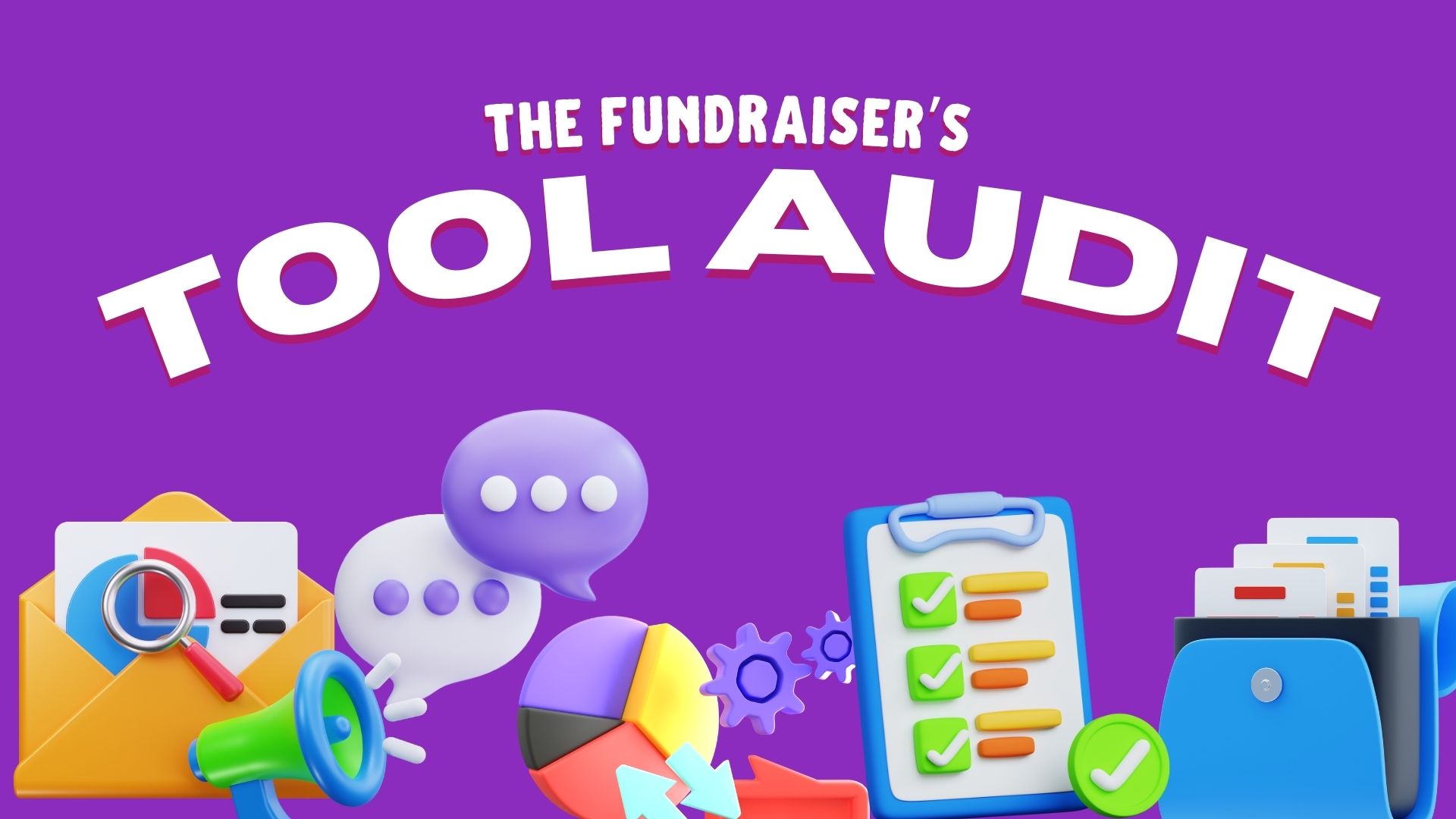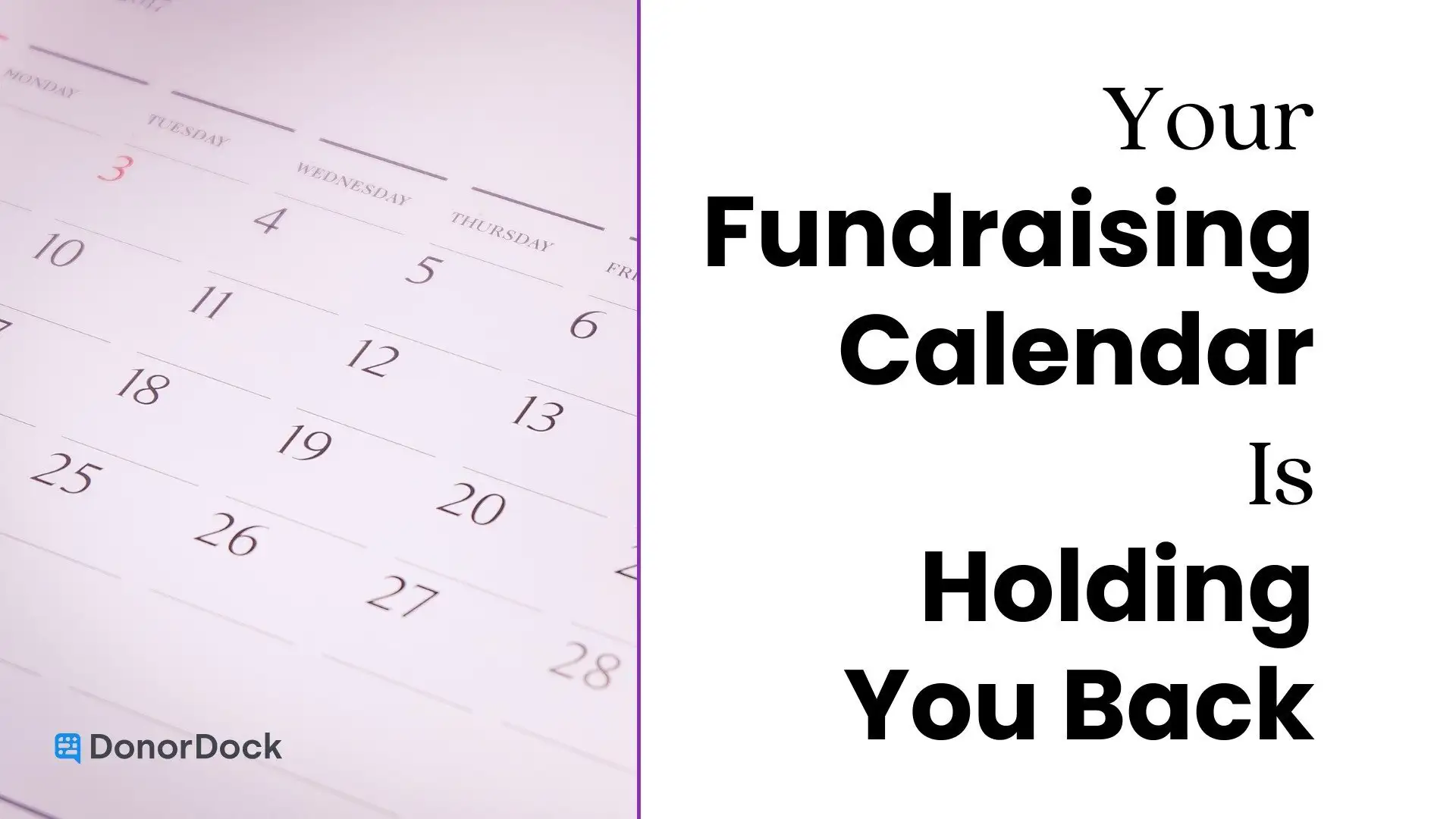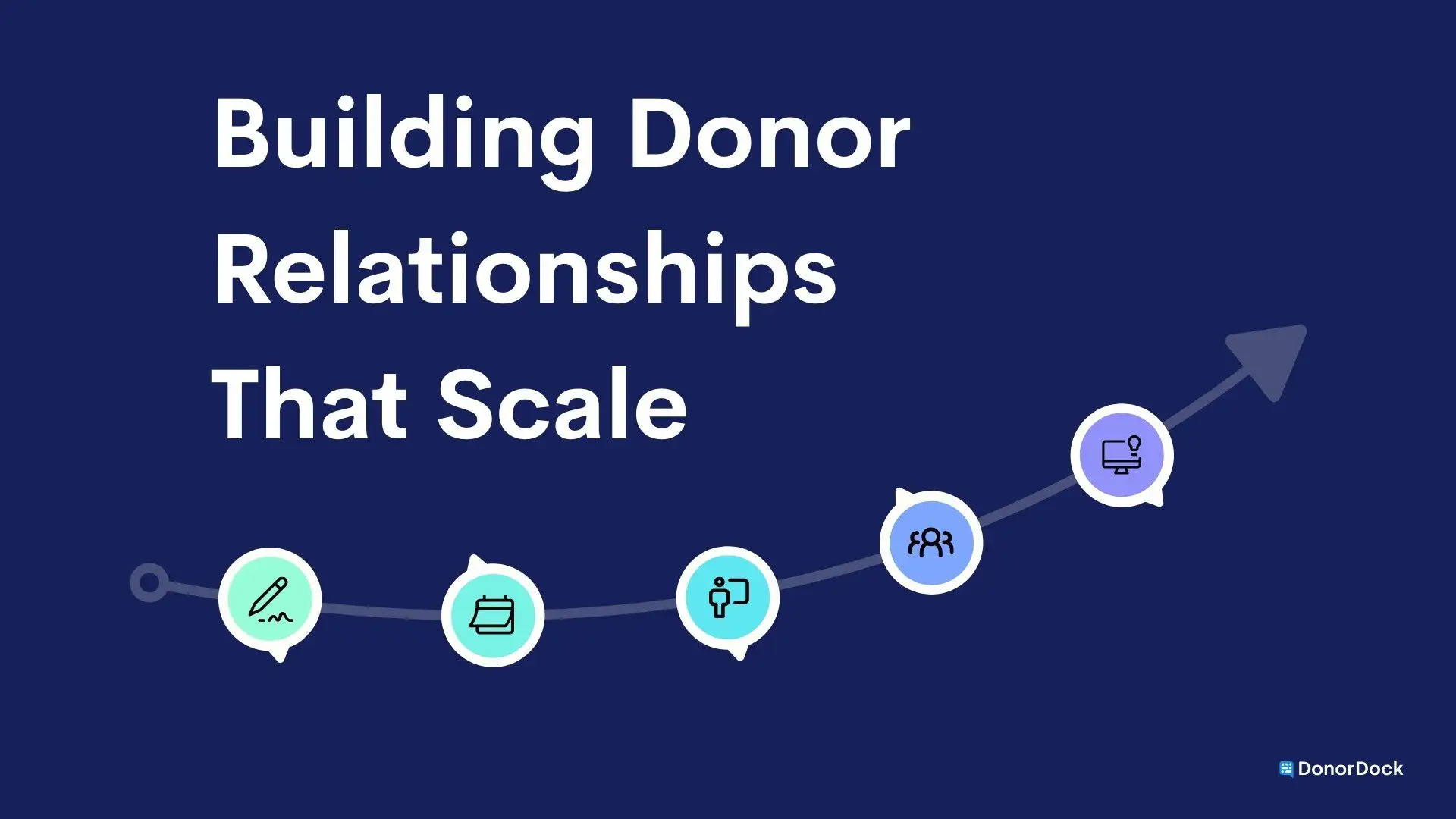In this episode of Beyond the Donation, Matt Bitzegaio talks to Tiffany Allen, founder and CEO of Boss on a Budget. They discuss the fundamentals of starting and funding a nonprofit. Allen shares her initial experiences of failures that led to the foundation of Boss on a Budget and shares critical factors to consider before starting a nonprofit, as well as crucial questions to ask, and the importance of having committed board members up front. They also discuss the importance of a strategic plan, a budget, a compelling ask, visibility, and leveraging social media and technology for startups.
00:24 Introduction and Guest Introduction
01:04 Tiffany Allen's Journey to Nonprofit Success
02:13 Key Questions to Ask Before Starting a Nonprofit
05:52 The Importance of a Strong Board and Clear Goals
08:07 Overcoming Challenges in Nonprofit Startup Phase
11:40 Effective Fundraising and Marketing Strategies for New Nonprofits
15:08 Leveraging Technology and Tools for Nonprofit Success
22:11 Final Advice for Nonprofit Leaders
23:37 Conclusion and Sign Off
To Connect with Tiffany Allen:
To Connect with Beyond the Donation Podcast:
BTD Podcast | DonorDock LinkedIn | Matt LinkedIn
Edited transcript
Introduction
[Matt Bitzegaio] Hello and welcome to Beyond the Donation. I'm joined today by Tiffany Allen, and we are going to talk all about how to start and fund a nonprofit.
Tiffany, why don't you take a couple of minutes and tell our listeners a little bit about yourself, and how you came to start Boss on a Budget.
[Tiffany Allen] I always tell people I come at this different ways. So, I started my first nonprofit in 2015 as a project in grad school, and it crashed and burned. And there are a lot of things that I learned in that process. Then years later I helped my ex start his nonprofit. I was handling the administrative pieces of it, and I was failing all along the way. There were so many things I learned because we were really “bootstrapping,” and he was using a lot of his personal money to launch the nonprofit.
I was Googling things like, “how do you raise money when you don't have any money?” “How do you get this kind of funding?” And there was nothing out there, at least from the perspective of starting from scratch.
There was a lot of information where people were talking over my head and using terms that I wasn't necessarily familiar with. At the same time at my job, I worked with national foundations. I saw how they fund nonprofits. It's not through the application and proposal process – a lot of it happens through relationships.
So now I teach weekly about startups and about how to get funding, specifically for those who don't have a lot of money in the bank and are starting literally from scratch.
Questions to ask yourself before starting a nonprofit
[Matt Bitzegaio] So if somebody has a great idea for a nonprofit and they want to get this thing started, what are some of the things you think that they should be considering before they ever even begin creating a nonprofit?
[Tiffany Allen] I like to think about this in terms of questions you need to ask yourself.
Is there a need?
The first question you need to ask yourself is: is there even a need? Sometimes the motivation for people to start is because they want to do something good. They want to help someone. But your idea of helping someone may not even be a need in your community. And a lot of times there are organizations that are already doing that kind of work.
So, first, you need to identify: is there a need? Can you fill a gap where your organization can provide some value?
Why am I starting this?
The next question you need to ask yourself is: why am I starting this? Is it to satisfy something in me, or is it to address the needs of someone else? If your motivation to satisfy yourself more than to help someone, then you don't need a nonprofit. You need to give to charity or volunteer. You have to be loyal to the mission, not to your own feelings, not to your own dreams.
It's the mission of the organization, and the mission is guided by what the needs are, by the people you're serving, or whatever you're addressing. This is something a lot of founders struggle with because they feel like “this is my thing my baby. I want it to look a certain way.” At some point, you have to let go and let the organization be what it needs to be for your community.
So ask yourself hard questions: Why do I want to do this? Is this only about me, or is it really to help someone else? It could be a dream of yours to help people, and you can still launch successfully, but it can't be the main reason why you're starting.
And then I would ask myself two more questions.
How will I make money?
The next question is really important. “How will I make money?” Because people don't think about money when it comes to nonprofits, and they don't realize that to continue to do good work, you need to have financial resources. When people start, they think, “Oh, I'll just pay for things out of pocket” or grants will just magically come. And that's just not the case.
So, you need to think critically about where your money is coming from. What are the revenue streams we're going to use to make money?
Who are my people?
And then who's going to do it with me? Who are my people? Who's on my board or who are the volunteers that are going to help me launch this thing? Because you cannot do this alone.
[Matt Bitzegaio] Those are such good questions to be asking yourself. And, I think that'll be helpful to people that are in that phase of saying, “I've got this idea. What should I be doing next?”
You touched on a couple of really important points. Oftentimes, there are already existing organizations that you might be able to come alongside and help there.
Okay. So I've got the idea, and I've asked myself all those questions. I still feel like it makes sense to do this. So then what, what are the first steps I take now that I'm ready to go and start this nonprofit?
Clarifying your mission
[Tiffany Allen] A lot of people think the next step after that is to fill out paperwork, and that's not the case. But what I would do is sketch out what my mission and vision is.
Because anybody that you need to attract or anything you need to do after that needs to identify what your mission is and what's the point of it all. So start with “what's the reason I'm starting and why is this important?” And that will help you identify what your mission and your vision is for your organization.
The importance of establishing a board
And then you need to start assembling a board. And this is where a lot of people get hung up. They put their family and their friends on the board, and they don't think critically about who can help them launch their vision.
You need to be thinking about a board immediately because you need varied perspectives. You need people who have a different flavor or different way of looking at things. They’ll help you strategize to launch. The correct process is you're supposed to vote on the process to incorporate. That meeting has to happen first. So you should already have a board in place before you do the paperwork.
A lot of people don't know that. And, so they immediately fill out the paperwork without meeting with anyone and just throw names on there.
The last thing I'll say is, what are your goals? What do you want to accomplish? Who do you want to serve? How many people do you want to serve?
Start thinking about the tangible things you're going to complete in that first year. That'll give you signals about where to put your time and your effort.
[Matt Bitzegaio] I didn't realize that technically you should have that board in place beforehand. But that makes a ton of sense. And I suppose you may get to a point where you're talking to those board members, and they help you circle back to some of those first questions that you were supposed to ask yourself before you even started. And maybe they are thinking differently than you are about it. That can help provide some different perspectives.
The biggest challenges a new nonprofit faces
You know, we hear a lot of times people get challenged in that phase of trying to get something started. There are a lot of logistical things – everything from trying to figure out who those board members should be to the challenges of dealing with entities like the IRS and your state.
What are some of the biggest challenges that you see in that phase?
[Tiffany Allen] I love this question because it's always a simple answer. When people ask me this, it comes down to two things: money and people.
Starting a nonprofit: the struggle of fundraising
Money: how do I make money? Where do I find the money? How do I raise it? How do I continue to raise the money, even if I'm able to raise some startup funding?
A lot of people don't really understand what fundraising is. They think fundraising is just, I put out a campaign, or I ask people one time and the money automatically comes. Or they think there's a magical grant out there, and I'm going to hire a grant writer or get a volunteer grant writer to write this great proposal for me. They have a lot of misconceptions about it.
They don't realize that it's all about developing relationships and having a compelling message. So that's the first struggle that a lot of people have.
Starting a nonprofit: the struggle of managing people
The second thing: it's the board. It's managing people. Even if it's not the board, if you have volunteers or a set of advisors, how do you manage those relationships? A lot of founders don't realize that there is this “people work.” You have to manage your people; you have to develop individual relationships with each board member if you want them to be engaged and active. You can't just say, “We're having a meeting” and then expect people to come and be fully ready to work because it doesn't happen like that.
It takes a lot of time, effort, and energy. People get frustrated because they wonder why am I putting my energy into this. I really need to be spending time doing the work, not dealing with my board and their attitudes or dealing with their lack of engagement.
So absolutely money and people are the two things that come up over and over again.
[Matt Bitzegaio] We hear about it all the time. I often talk to founders who start something because they care about the cause and the mission. And, then the reality strikes that there's so much to this to just keep it going and to get it started. So, I think it goes back to those early questions you mentioned.
Planning and development for new nonprofits
So, we had this idea. We worked through these questions. We have our board, and we have agreed that we're going to do this. And, we've even gotten an approved 501c3. What are the next things that I need to do now to start the organizational development of this nonprofit? And are there certain processes that you should have in place before you go any further?
[Tiffany Allen] Getting 501c3 status is kind of like a validation. It's an important part of it, but you're already a nonprofit before you do that.
So, a lot of this planning and development happens before then. And 501c3 status is a part of that planning. It's a milestone you need to reach, but you need to be doing the work before then. So I like to tell people to focus on certain plans.
The first thing you need to think of is your strategic plan, and it does not need to be complicated. I know in the nonprofit world you could have a really detailed strategic plan. I'm just saying just think about where you want to be five years from now.
Then in this next year, what are the things you need to do to move the needle to get you there? Break that down year by year. So in the next year, what are the key goals you need to hit to be able to move forward?
Think in terms of your programming, in terms of your admin, or your overhead. And, think in terms of your fundraising and marketing. The reason why I say that is because that's how the IRS categorizes your expenses. So, I like to keep things streamlined for people so they can think about it the same way.
To start a nonprofit set your goals and plan your budget
So, figure out what your goals are, what you need to accomplish, and how that translates into your budget. Because one of the things I didn't say about money is that people never have budgets. They never know how much they need to raise. They never know how much it costs to run their programming. When you look at your goals and what you want to accomplish, then that's your budget. That translates to what it will take to be successful in the year.
So, you need to identify your expenses. And then figure out how you are going to pay for that. So the next step is your fundraising plan. What are the fundraising strategies you're going to put in place to make sure you can cover your expenses and have the cushion you need to continue to be financially sustainable?
Plan for your marketing and visibility
The fourth thing is your marketing and visibility. As a new organization, your visibility matters because you don't have the track record that other organizations have. But if you show up consistently, if you show the impact that you plan to make, and if you establish yourself as an authority in your space, people begin to trust you. And people begin to believe in what you're trying to do. So your visibility is really important as a newbie. So I always tell people to look at the marketing as well.
[Matt Bitzegaio] And how do you reconcile being a new nonprofit without the funding yet, and guide them in ways to do marketing? Especially, when it's just this one founder and their board to get started. Do you have any tips or ideas on ways to do guerrilla marketing or ways to get around those resource constraints that a new nonprofit is going to have?
[Tiffany Allen] Well, the first thing I would say is to make sure that you, the founder, and the founding board are contributing financially to the organization. So it should be an expectation that everybody who decides to be on the board, they're legally responsible, they're ethically responsible for the organization. They're financially responsible. So even if it's 10 a month, even if it's 50 a month, people need to have some skin in the game. And that can be the startup funding that you need to pay your fees to the IRS.
Leveraging social media for marketing
But the great thing about the world we're living in right now in terms of your marketing –social media is free. Some people get on social media every day and because they show up people like them and trust them.
They'll recommend something and people will go out and buy it. And these people aren't necessarily like any authority. It's just because people feel a connection to them, they trust them.
So I would leverage social media. And show up and talk about whatever issue you're addressing and the problem you're solving. Talk about your unique spin on it. What perspective do you have? How can you comment on that? Then people will see you as an authority and begin to look to you as the answer in your community to this issue.
Guerrilla marketing as a startup nonprofit
And, when you're talking about guerrilla marketing, start meeting people in your local community. Meet your local officials, and let them know who you are. Go to local associations or local clubs and local churches and start talking about what you're doing. Build your contact list and start communicating with them because you're taking them on a journey, right?
This startup journey isn't just for you and the board. It’s for everyone else who believes in what you're doing. And I like to say you're building a movement. So bring people along and that's like the best way you can stay visible. And that's the best way you can get people to trust you so they can get to you.
Marketing 101 for new nonprofits
[Matt Bitzegaio] You've kind of touched on this a little bit in that answer. It sounds like you're a big believer in relationship-based fundraising. And, so am I. But do you have any other thoughts on little things that you've seen be successful as people are just getting started when they're trying to raise those initial funds outside of that board commitment?
Crafting a compelling ask
[Tiffany Allen] The first thing is make sure your ask is compelling. It's not just about you or you wanting to start something in your community. So people who don't know you are drawn to what you're addressing. It is something that irritates them or is something that they wish was better or something they wish they could help. Align yourself in that way with your donors.
You have to identify what is the thing that's going to get people to move. What is the thing that's going to get people to mobilize? The story behind it all. What's the why?
And what is the hope you can bring to them? Because you want to irritate them and you want to present the problem to them and let them see that they can help solve the problem. So, you want to position that in that way.
Too many times people go at it as, “Hey, I'm a new nonprofit. We're going to do something new in the community. Give to us.” They aren’t appealing to what matters to the people who want to give. They don't necessarily care that a new organization is starting. They don't care enough to give. If you tell them, “Hey, with your money, we're going to make sure five people don't have to go through this problem that I know you see every day is an issue in our community,” they’ll care more. So I think that's the first thing people struggle with.
Peer-to-Peer Fundraising
I love peer-to-peer fundraising. And when people are starting from the ground up, I tell everyone to do a peer-to-peer fundraising strategy. You're getting people to tap into their networks. and ask the people who already know them and care about them to give to a cause that they care about. It's a really effective way when you don't have any donors to build your donor base.
Leveraging technology as a new nonprofit
So I would make sure you're using technology to your advantage. Don't just collect cash and checks. Don't just use a cash app. Use a donation platform. Use all the technology that's available to you, so you can be more effective and more efficient.
Free tools for nonprofits
[Matt Bitzegaio] And there are lots of tools out there that are free or low-cost for people getting started. DonorDock has our free online giving and donor management platform that we really are trying to make available for organizations to get started on the right foot. So they're not trying to deal with bad technology later.
Are there any other tools that you've seen be successful in helping people as they're getting started?
[Tiffany Allen] Beyond a donation platform, which, a lot of them are free now, so there's really no limitation. I love Canva. It's a free graphic design app, and it's really easy to use. You can design all kinds of things with it. So if you're not tapped into Canva, you should be.
Email marketing– so, you should be communicating with your supporters and your donors on a regular basis through email. There are a lot of services you can start off for free.
And just like you said, with DonorDock, have a good CRM. Have a good donor relationship management system or database. A place where you can keep track of the communication and relationships you're building so that you can have a streamlined process for asking for money and fostering those relationships.
One piece of advice for nonprofits new and old
[Matt Bitzegaio] I 100 hundred percent agree with you. If you could offer one piece of advice to nonprofit executive directors, whether it's more seasoned or new startup ones, what is that piece of advice that you would offer up?
[Tiffany Allen] Never forget the power of a relationship. Make sure you're investing in genuine connections with people. When I teach people about fundraising, I like to tell them that the end goal is not the money. The end goal is the relationship. When you seek the relationship, everything else will come. And you'll get way more than money when you seek the relationship first.
Never make this about the transaction. Make it more about the relationship with the person.
Where to find Tiffany Allen
[Matt Bitzegaio] For our listeners who want to learn more about Boss on a Budget and the services that you provide,where can they find you?
[Tiffany Allen] The easiest way to find me is on YouTube. Just put in Boss on a Budget. I go live every Sunday night, so you can see me there. Or you can visit me at bossonabudget.com.
I'm also building a new community for people who need help starting to get that startup funding. So you'll find information about that on those two.












